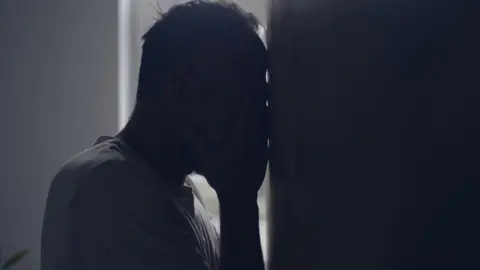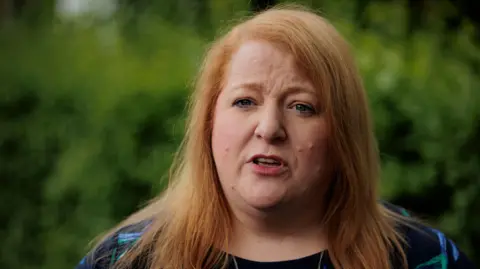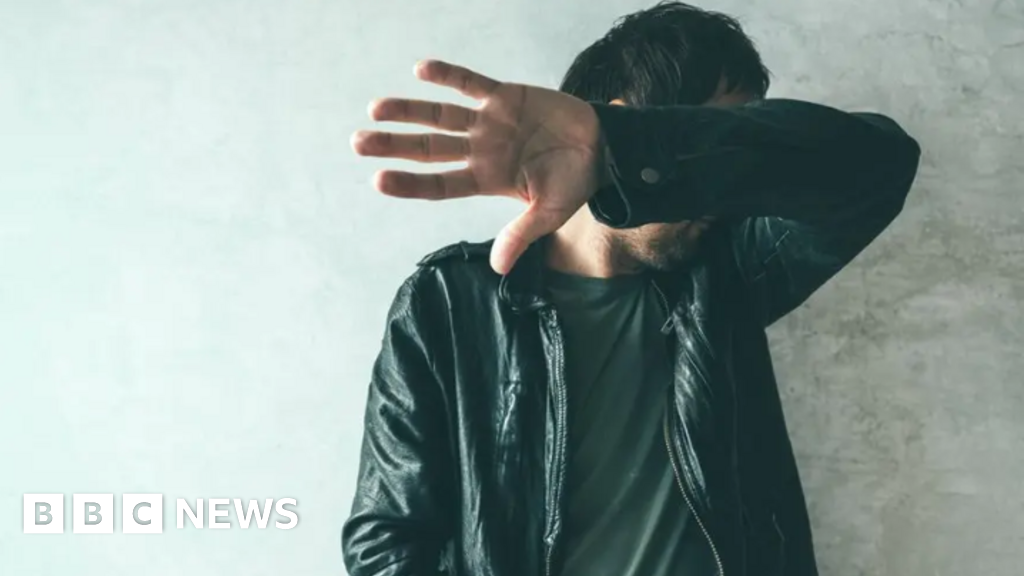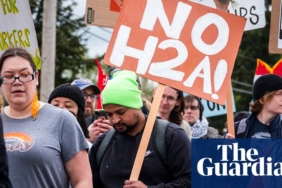Bu içerik, Kuzey İrlanda’da partnerlerinden şiddet gören erkeklerin çoğunluğunun sessiz kaldığına dair bir araştırmayı ve bu konudaki destek eksikliklerini ele almaktadır. Araştırma, erkek kurbanların yaşadığı zorlukları, intihar düşüncelerini, depresyonu ve anksiyeteyi vurgulamaktadır. Ayrıca erkek kurbanlara destek sağlanması ve bu konudaki utanç duvarlarının yıkılması gerektiği vurgulanmaktadır. Ayrıca, erkek kurbanların çocuklarıyla olan ilişkilerine zarar veren barınak eksikliği gibi konular da ele alınmaktadır. Adalet Bakanı ve Sağlık Bakanı da raporun önerilerinden yararlanacaklarını ve erkek kurbanların daha güvende hissetmelerine yardımcı olacaklarını belirtmektedir. Ayrıca, domestic abuse konusunda destek hizmetleri hakkında detaylı bilgi almak için BBC Action Line’a başvurulabileceği belirtilmektedir.
[ad 1]
Kaynak: www.bbc.com

 Getty Images
Getty ImagesMore than half of men in Northern Ireland who suffer domestic abuse from a partner do not disclose it.
That is according to a major new study by Queen’s University Belfast and Northern Ireland’s commissioner for the victims of crime.
More than 70% of the men interviewed by researchers said they had considered suicide and the majority had experienced depression or anxiety.
The report also said there is a pressing need to provide support to victims who do come forward and efforts made to tackle stigma surrounding this issue.
Prof Cherie Armour, one of the authors of the report, said there was a “critical lack of research into the prevalence and health impacts of intimate partner violence against men and boys”.
She said this has an affect on the support available to those in need.
Prof Armour explained that the research consisted of a two-part study, which including an online psychological wellbeing survey to which 115 men responded.
The second part of the study comprised one-to-one interviews with 10 men about their personal experience of domestic violence and its aftermath.
“The interviews, on average, last 60 to 90 minutes, so that’s a very in-depth conversation that we have with men about their lived experience of these issues,” she told Good Morning Ulster.
Prof Armour added that many of the respondents described early “red flag behaviours”, which later escalated into significant domestic violence.
What support is there for male victims?
According to Stormont’s recent Domestic and Sexual Abuse Strategy, almost a third of victims of domestic abuse in Northern Ireland are male.
Support organisations for male domestic abuse victims have long criticised poor services and lack of funding in the area.
Northern Ireland has no refuge for male victims of domestic abuse.
The new study found that “barriers associated with stigma and trust” were the most common thing that prevented men from disclosing or seeking help.
According to the Police Service of Northern Ireland (PSNI), from August 2023 to July 2024 there were four homicides in Northern Ireland with a domestic abuse motivation. The victims were two males and two females.
In 2022/23, there were six domestic homicides with four female and two male victims.
Those statistics do not include the four women who were killed in Northern Ireland this summer over a period of six weeks.
Victims and survivors who contributed to the study found that psychological aggression, coercive control, and physical assault were the most common experiences.
‘Our child had to see all of it’
Alex’s wife was mentally and physically abusive to him – she punched and bit him during some of the episodes of abuse and threatened to kill him and herself.
“I got to the point I was afraid to come home and our little child was subjected to seeing all of this many times,” he told BBC News NI.
“I’ve never felt society understands male domestic violence, the entire judicial system, police and society are all geared towards the female as the victim.
“In an ever-changing world these issues are real, however, they are kept quiet as men in general feel isolated and afraid to speak out.”
Alex said he had suicidal thoughts during the abuse but that a friend noticed his state of mind and “sat him down”, which helped him overcome the crisis.
He added that not enough is being done “to support victims, to police it properly and for prosecution within the courts”.
Recently, BBC News NI reported on the 24 women who have been murdered in Northern Ireland in the last four years.
In October, Claire Hanna MP told Parliament Northern Ireland “remains one of the most dangerous places in Europe to be a woman, with a femicide rate twice that of Britain”.
‘Crushing stigma’
Commissioner designate for victims of crime Geraldine Hanna described the findings of the report as “deeply concerning”.
She told Good Morning Ulster they “underscore the need for policies and processes that address the unique needs of men and boys and highlights potential gaps in service provision, particularly in rural areas”.
Ms Hanna said there was still a “crushing stigma” experienced by men who report domestic abuse, which feeds into the response they receive when they ask for help.
“The other key stand out, for me, in this is that it helps dispel the myth that intimate partner violence only happens in male same-sex relationships because that is not the case and women can be abusers as well,” she added.
The commissioner designate pointed out the lack of refuges for men fleeing violence can have a damaging impact on their relationship with their children.

 PA Media
PA Media“Hostels are not necessarily a place where children can come and visit their fathers,” she said.
Ms Hanna added that many men end up “sofa surfing” after escaping an abusive relationship. and this can put stress on the wider family unit.
Justice Minister Naomi Long said she looked forward to using the report’s recommendations to “help male victims feel safer”, while Health Minister Mike Nesbitt said the research was a “crucial step” in understanding the specific experiences of male victims.
Details of support for domestic abuse are available at BBC Action Line.





Yorumlar kapalı.